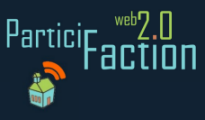As part of a School Board committee, I've been asked to help roll out a philosophy for spending time & money on educating teachers in the ways of Web 2.0. What follows is what I have so far; any contributions via comment? Mission statement connectors are yet to be developed...
Thanks,
Ross.
_______________________________________________
Philosophy for rolling out Web 2.0 instruction to Halton teachers:
General:
- The purpose of the education system is to best prepare our students for their probable futures.
- While it is impossible to predict the future due to the current rate of change in both society and the influence of technology, we must do our best with what we have to best prepare students for what is most likely.
- It is very likely that technology and its uses (Web 2.0, or the "read/write web") will become increasingly important in the future.
- Post-secondary institutions and workplaces are now starting to implement Web 2.0 functionality and require Web 2.0 facility.
- We have, currently in place in Halton Schools, the technology required to have our students engage in Web 2.0 learning; further investment in hardware will be of benefit and increase accessibility, but we can start now without additional equipment cost.
- Teachers who are comfortable with Web 2.0 functionality will be more likely to use / teach it.
- To be effective digital citizens, students should be instructed in Web 2.0; we must embrace and instruct all such applications, including social media.
- The current education system is modeled on an industrial economy; we are now in a digital economy and our education system must change to reflect that.
- Industrial jobs are decreasing and will likely continue to do so; technological and creative jobs are on the increase and will likely continue to do so.
- We want to create life-long learners; today the number one source for self-education is the Internet, and it is Web 2.0 functionality that allows education to flow in multi-directional ways. Students need to learn how to tap into / foster online communities that will serve them well in their ongoing education.
- Web 2.0 is not a "fad" or "just the latest thing" -- it's implications include a cultural shift in information sharing, the likes of which have not been seen since the invention of the printing press; we are teaching new, different individuals (and using outdated methods if we're not teaching Web 2.0).
- If we want our students to know and effectively use Web 2.0, we have to teach it. To teach it, our teachers need to know it.
Halton Mission Statement connectors:
- Halton has an opportunity to be a provincial leader in Web 2.0 education by investing now and making full use of interested staff members.
Quotes & Sources:
"Today’s learners want to be active participants in the learning process – not mere listeners; they have a need to control their environments, and they are used to easy access to the staggering amount of content and knowledge available at their fingertips." 2009 Horizon Report
The Provincial Government of Ontario initiated a study to discover
"how to ensure our economy and people remain globally competitive and prosperous."
The results are summarized in the Toronto Star, one conclusion being:
"We are moving to an economy that values people's creativity, especially a combination of analytical skills – reasoning in uncertain environments to make good decisions – and social intelligence skills – capabilities to understand other people and to work in team settings." The Toronto Star Article
The "What if?" chart from this blog.
Monday, April 27, 2009
Subscribe to:
Post Comments (Atom)




No comments:
Post a Comment